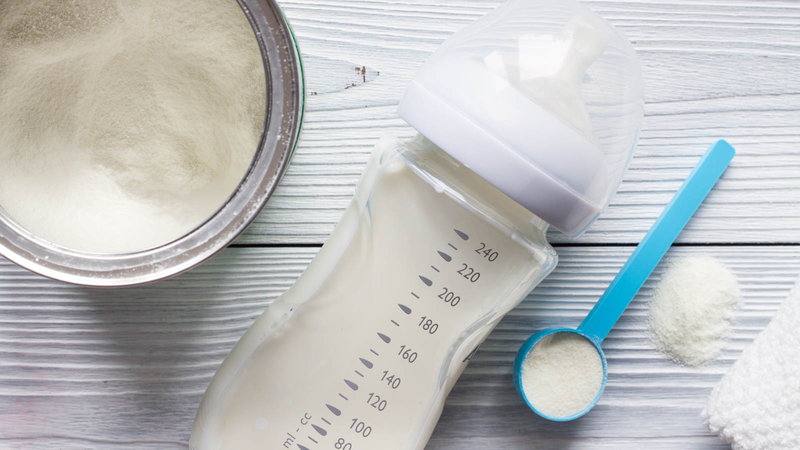
Having a colicky baby can be incredibly stressful and frustrating for parents. Colic refers to when an otherwise healthy baby that cries for three or more hours a day, three or more days a week, for three or more weeks (and often much longer). This pattern begins in the baby's first month, and usually resolves before baby reaches six months of age; often the crying begins at around the same time each day. As many as fifty percent of babies may fit "colicky" definition, so you are definitely not alone in this struggle!
The causes of colic are not completely understood. The suspected causes vary, and include food sensitivities/allergies, an immature nervous system, an immature digestive system, and intestinal gas. Colic itself is a symptom of acid reflux, or gastroesophageal reflux disease (GERD), in infants. Be sure to check in with your doctor about diagnosing your baby to rule out this condition. GERD can be treated with medication and simple lifestyle changes.
If your baby does have colic, what can you do to help soothe her cries and apparent pain? With colic having so many possible causes, there are many proven methods of relief—but not every solution helps every baby.
Colic Soothing Strategies
• Carry your baby — try a baby sling or other body carrier to be hands-free. Try out a few styles and see what works best for you, as they can seem awkward at first. Some babies are soothed by being held against your body—perhaps by the motion, or by hearing a heartbeat, just as they did in the womb.
• Use some white noise — vacuum with baby nearby, take a car ride, or put baby (in a car seat) on the floor near a running dishwasher, washer or dryer. A white noise machine or calming nature CD might also help.
• Try a quiet space — you can take the opposite approach and try placing baby in a quiet, dimly lit environment. A baby with an immature nervous system may be overstimulated by bright lights, noise, and constant movement all day long. Speak soothingly and sing soft songs.
• Feed at first signs of hunger — when your baby begins to show signs of hunger, feed him or her right away. Babies can swallow a lot of air while crying in hunger, or suckling when overly hungry, and this air turns to gas.
• Eliminate certain foods — if you are breastfeeding, try eliminating dairy or other common allergens from your diet—wheat, eggs, soy, peanuts/tree nuts, or fish. It will generally take up to 3 weeks to see an improvement, so don't give up. You might also want to cut caffeine from your diet. Other allergy symptoms in infants include rashes, eczema, and vomiting. Breastfeeding moms can try eliminating commonly gas-causing and/or acidic foods such as cabbage-family vegetables, beans, tomatoes, and citrus.

• Switch formulas — if you are bottle-feeding using a milk-based formula, try a soy-based one, or vice versa.
• Consider probiotics — discuss probiotics with your pediatrician. Probiotics are a newer treatment for colic. They can provide good bacteria to the gut; babies with immature digestive systems may be helped by them.
• Experiment with the tried-and-true — traditional colic relievers are always worth a try: burp baby after every feeding; bicycle-motion your baby's legs to help eliminate gas; check with your doctor about commercial baby gas-relief drops; use the "colic hold" by laying your baby on your forearm, stomach down, head in your hand, and legs hanging down, and rub her back.
Don't forget to take care of yourself. Caring for a colicky baby is exhausting, both physically and mentally. Accept help from friends and relatives who can hold your baby, even in 15 minute stretches, so you can take a nice hot shower or have a cup of tea. And, if you need to, put baby down in his crib to give yourself a break. An angry, frustrated, and exhausted mom or dad can only pass those feelings on to an already-upset infant.

